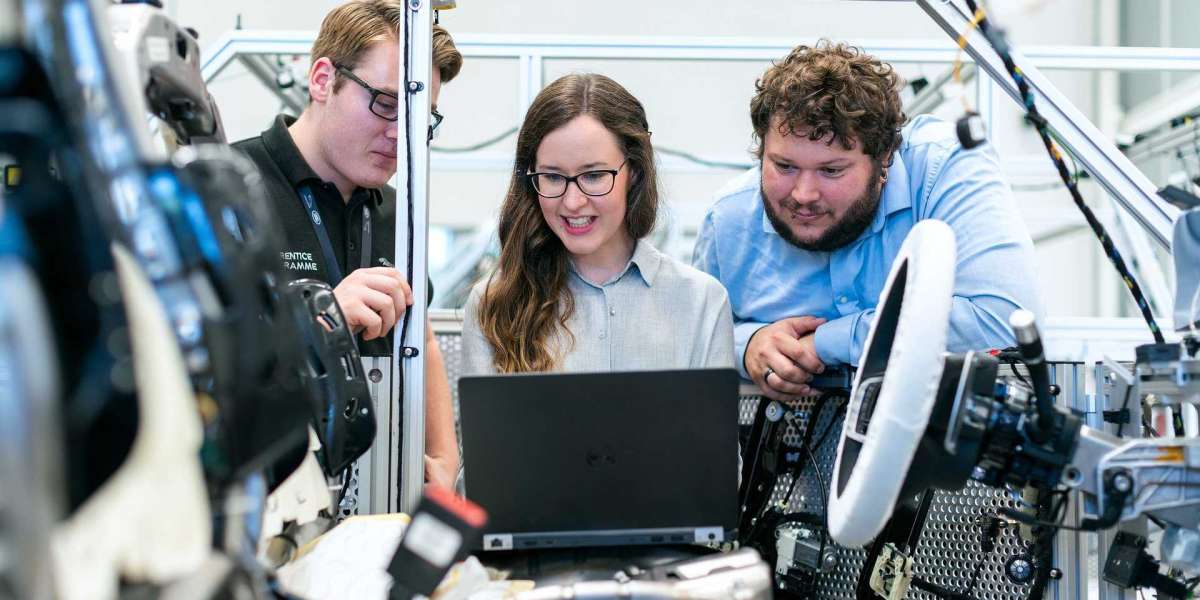As many as 80 high school students from all over Croatia had the opportunity to participate in workshops last week in applied computers, robotics, multimedia computing, and geological engineering, which were held at the University of Zagreb. The sessions, which were free for students and included reimbursement for travel and lodging expenses, drew a lot of interest, with as many as 919 applications submitted for a total of 80 spots available.
15 lecturers conducted workshops lasting 5 days in the Sports Gymnasium and the Faculty of Mining, Geology, and Petroleum Engineering in Zagreb, according to a program developed by the University of Algebra and the Faculty of Mining, Geology, and Petroleum Engineering in Zagreb in collaboration with the Croatian Office for Creativity and Innovation (HUKI) and the Institute for the Development of Education (IRO).
In addition to video game development, the workshops included topics such as Earth, Man, and Geotechnology, as well as Robotics and Robotics-related issues.
Such programs have the advantage of exposing children to STEM through popular modes of instruction while also allowing them to meet students from different regions of Croatia who have similar interests and provide a break from their typical setting, which helps them to become more independent. According to prof. dr. sc. Marta Mileusni from the Faculty of Mining, Geology, and Petroleum Engineering, such programs, in addition to popularizing STEM, also assist students in choosing their future profession.
Dino Kurelovi, a lecturer at the University of Belgrade, stressed the necessity of comprehending the technical environment.
Youth development programs like this help young people to develop critical thinking skills as well as innovative problem-solving techniques, and they also provide them with a fresh perspective on the technology that is so pervasive in their life. During the session, students were able to see what was going on behind the scenes of the computer game or program that they use on a daily basis, as well as what needed to be done in order to make it available to the end user. I believe that the majority of them are interested in the topics we discussed, and I believe that a workshop like this has helped them gain a better understanding of the topics and consider whether they want to continue their education in this direction or whether they want to do so at some point in the future. Even if students do not pursue a career in the STEM field, such seminars have the potential to alter people's perceptions of what goes on behind the scenes of the finished products that are made available to us, as Kurelovi pointed out.
It is encouraging to see programs and activities like these, which will be implemented as part of the STEM Academy project, as a method to increase awareness about the value of investing in knowledge and problem-solving creativity. According to Maja Puhovski from the University of Algebra, the STEM Academy will undoubtedly make a substantial contribution to the promotion of STEM skills, and as a result, the University of Algebra is pleased to be a part of this initiative and its long-term viability.
Inka Vukovi, a student from the 1st grade of the Secondary Crafts and Technical School Ogulin, who participated in the workshop for the creation of video games, expressed her joy with the experience.
My first experience with STEM seminars was a positive one, and the opportunity to take part in them was greatly appreciated by me. The profession of education I intend to pursue (Computer Technician) is one that I find both fulfilling and enjoyable, and this school has provided me with an opportunity to gain exposure to a broader spectrum of programming. These five days were spent learning how to work with Unity and the C # programming language, which will allow us to build video games in the future. The STEM Academy made an indelible impression on me and the other participants, and it opened doors to opportunities for future education and training. The sense of community and mutual cooperation that we students and lecturers experienced will be etched in our minds for a long time. The instructors generously shared their knowledge and experiences with us on an unreserved basis.
Interactivity and communication in the form of dialogue with students were particularly pleasing to Galla Uroi from The Faculty of Mining, Geology and Petroleum Engineering, who expressed her appreciation for this feature.
Participants were enthusiastic and willing to actively participate in the workshop, interact, ask questions without hesitation, and generally take the initiative in working on the workshop, which made for an exceptionally nice and good experience.
Programs like this, which are geared toward young people, are desperately required, especially when we consider the fact that practically every county is short on professionals in the field of STEM. As the educational advisor from the Institute for Educational Development Ana Uglei concluded, "I am pleased that the participants were engaged throughout the lecture and that they expressed a strong interest in learning more about how to continue their education in the STEM field, whether in Croatia or abroad."
Following the success of the workshops, the project will be carried on in the second half of the year, during which the STEM festival will be held in conjunction with it. Specifically, the project seeks to provide children and young people with the opportunity to develop STEM-related abilities, as well as learn about new innovative learning methods, as well as ways to achieve discoveries and outcomes in the field of science.
The STEM Academy project will be implemented over a two-year period beginning on June 29, 2021, and will be completed by December 31, 2021. The European Union provided co-financing for the project through the European Social Fund (ESF). The project was co-financed by the Office for Non-Governmental Organizations of the Government of the Republic of Croatia, which also served as the project coordinator. The project has a total cost of HRK 1,224,392.86 (approximately).




Akpor Henry 4 yrs
Pls when is the seminar going to hold?